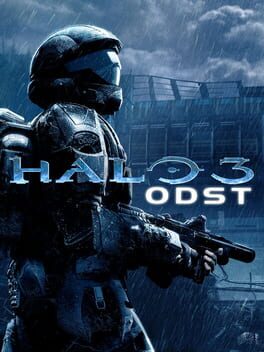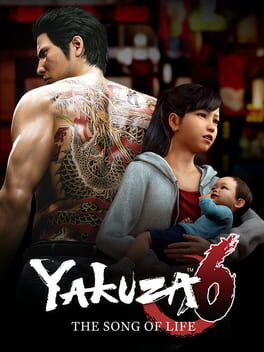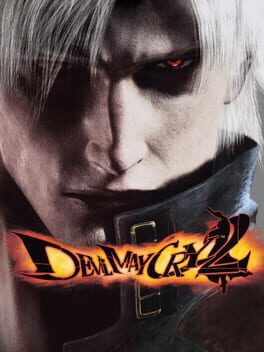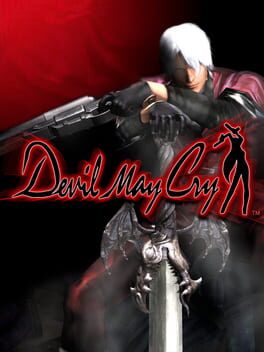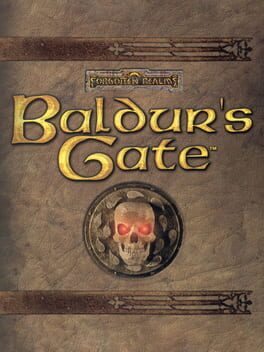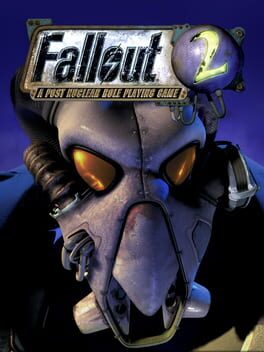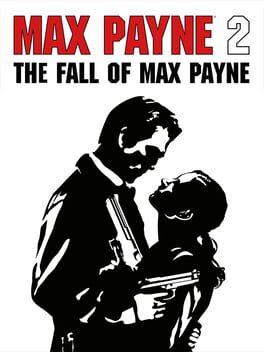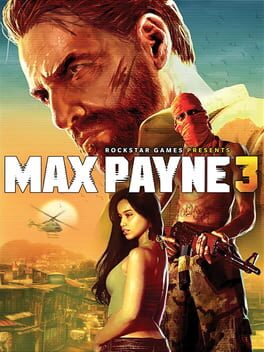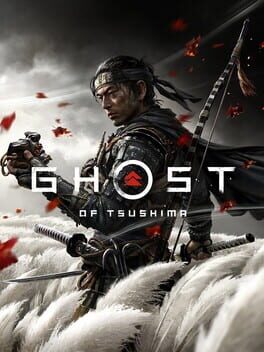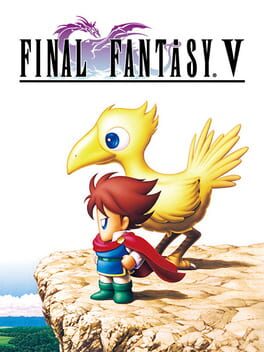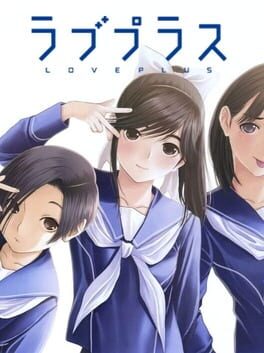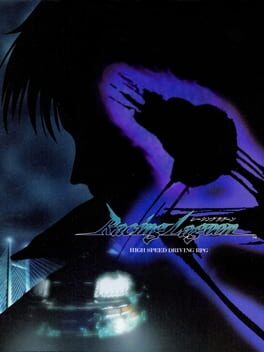MarioBalls
2009
Actually my favourite Halo game.
Take the polish, variety, and pacing of 3, throw in a modestly sized, immersive open-world, and smother it in layer upon layer of moody atmosphere, and you have a Halo game that feels like it was made for me. It’s only crime is its length.
Also the best soundtrack in the series, bar none.
Take the polish, variety, and pacing of 3, throw in a modestly sized, immersive open-world, and smother it in layer upon layer of moody atmosphere, and you have a Halo game that feels like it was made for me. It’s only crime is its length.
Also the best soundtrack in the series, bar none.
Combat is quite shallow, and the job system is so simplistic, it’s inclusion feels like more of an obligation than a creative decision, but goddamn if this shit ain’t one of the most charming things I’ve ever played.
Basically, everything you expect a Yakuza game to do, is done here, and with flying colours. The secret ingredient is its cast of middle-aged losers trying to find their place in the world, and their contagious, unerringly positive energy that seems to infect not only the characters they interact with, but the very video game—Yakuza: Like a Dragon—itself. (Ichiban might seriously be one of the greatest video game characters ever).
While its flaws are noticeable, even with a cursory glance, it exudes so much charm, and is put together with so much love, that I can’t help but give it a big, figurative hug and let it know, figuratively, that it’s beautiful as is.
Basically, everything you expect a Yakuza game to do, is done here, and with flying colours. The secret ingredient is its cast of middle-aged losers trying to find their place in the world, and their contagious, unerringly positive energy that seems to infect not only the characters they interact with, but the very video game—Yakuza: Like a Dragon—itself. (Ichiban might seriously be one of the greatest video game characters ever).
While its flaws are noticeable, even with a cursory glance, it exudes so much charm, and is put together with so much love, that I can’t help but give it a big, figurative hug and let it know, figuratively, that it’s beautiful as is.
I’m pretty sure I agree with every gripe people have about this game, but it has some strong points that are so strong, I’m willing to (kind of) ignore those blemishes.
After the unchecked ambition of 5, it’s nice to play a much shorter, more focussed Yakuza game. I suspect this has more to do with factors outside of RGG’s control, like migrating and adapting to a new engine, and having the game be fully voiced.
Speaking of which, the fact that this game is fully voiced is mind blowing; yes, the game is on the shorter end of the Yakuza spectrum, but even with comparatively less content, there’s still a shitload of stuff to do. Thinking about the amount of time and effort it must’ve taken to complete such a Herculean task scares me. It paid off, though.
What I love most about Yakuza 6, however, is the Onomichi map. As per usual for this series, the atmosphere here is just perfect, and serves as a beautiful counterpoint to the hustle-and-bustle of Kamurocho. Slowly walking around maps and letting all ambience wash over you is one of the best things about these games, but RGG outdid themselves here. My numerous, peaceful strolls through Onomichi are some of my fondest memories with the series. Onomichi is easily my favourite location in the series. Please bring it back, RGG.
So yeah, I have a hard time arguing that it DOESN’T deserve a lot of the flak it cops from people, but it does a lot of things that make me happy.
After the unchecked ambition of 5, it’s nice to play a much shorter, more focussed Yakuza game. I suspect this has more to do with factors outside of RGG’s control, like migrating and adapting to a new engine, and having the game be fully voiced.
Speaking of which, the fact that this game is fully voiced is mind blowing; yes, the game is on the shorter end of the Yakuza spectrum, but even with comparatively less content, there’s still a shitload of stuff to do. Thinking about the amount of time and effort it must’ve taken to complete such a Herculean task scares me. It paid off, though.
What I love most about Yakuza 6, however, is the Onomichi map. As per usual for this series, the atmosphere here is just perfect, and serves as a beautiful counterpoint to the hustle-and-bustle of Kamurocho. Slowly walking around maps and letting all ambience wash over you is one of the best things about these games, but RGG outdid themselves here. My numerous, peaceful strolls through Onomichi are some of my fondest memories with the series. Onomichi is easily my favourite location in the series. Please bring it back, RGG.
So yeah, I have a hard time arguing that it DOESN’T deserve a lot of the flak it cops from people, but it does a lot of things that make me happy.
2003
I try not to be so negative these days, but I must concede that DMC 2 sorta deserves to be slandered as much as it has been over the last 22 years—this game is fucked. I’m sure everyone here has already explained why.
I first played it in my early teenage years and even then, I hated it. If you can’t even win over a moronic, perverted boy, then there’s no hope for you, DMC 2. At least you were so bad that they made 3 super good to compensate. That’s worth something, I suppose.
I first played it in my early teenage years and even then, I hated it. If you can’t even win over a moronic, perverted boy, then there’s no hope for you, DMC 2. At least you were so bad that they made 3 super good to compensate. That’s worth something, I suppose.
2001
1998
1998
I think I actually like this one a little more than the first game—mainly due to its writing and, what felt like to me, more variety in general—but I have little desire to come back to it. I’m sure I’ll find the urge again someday, but it’s so long and a little more railroad-y than Fallout 1, thus making the prospect of a replay really unappealing—not something you want in a CRPG.
1997
My first run of Fallout was a bit of a mess; I enjoyed the game a decent amount, but often found myself hindered by my build, and questioning how much my build actually mattered for dialogue and checks.
For my second run, I came up with a much more effective build, and decided to do a sort of ‘casual speedrun’ using the knowledge I’d acquired on my first playthrough. As I rushed through settlements, completing as many quests as I could, as quickly as I could, I realised how great this game is.
When the game begins, you’re given a clear objective, you’re let loose into the world, and it’s totally up to you to figure out how to achieve that objective. In my second run rush, the game never steered me into playing a certain way. I did quests ‘out of order’ so to speak; I even completely ignored a major quest, and it still never stopped me or anything. Great stuff.
While I think I agree with the consensus that this game’s tone is preferable to the overtly comedic tone in Fallout 2, I did feel that Fallout 1’s writing was lacking in personality compared to 2. I value personality a lot, so without replaying both games, I can’t really say which has the better writing to me, but the discrepancy is worth noting.
It also has a great soundtrack. The amount of tracks is sparse, however—I would consider that pretty crippling, even if the overall quality of the music is this high.
I don’t think Fallout 1 is quite as good as everyone says it is, but I do like it a lot.
For my second run, I came up with a much more effective build, and decided to do a sort of ‘casual speedrun’ using the knowledge I’d acquired on my first playthrough. As I rushed through settlements, completing as many quests as I could, as quickly as I could, I realised how great this game is.
When the game begins, you’re given a clear objective, you’re let loose into the world, and it’s totally up to you to figure out how to achieve that objective. In my second run rush, the game never steered me into playing a certain way. I did quests ‘out of order’ so to speak; I even completely ignored a major quest, and it still never stopped me or anything. Great stuff.
While I think I agree with the consensus that this game’s tone is preferable to the overtly comedic tone in Fallout 2, I did feel that Fallout 1’s writing was lacking in personality compared to 2. I value personality a lot, so without replaying both games, I can’t really say which has the better writing to me, but the discrepancy is worth noting.
It also has a great soundtrack. The amount of tracks is sparse, however—I would consider that pretty crippling, even if the overall quality of the music is this high.
I don’t think Fallout 1 is quite as good as everyone says it is, but I do like it a lot.
I don’t have a lot of experience with games like this where they hide threats in blind spots in tight corridors, rendering it impossible to know where they are without possessing an intimate familiarity of the game—it’s very trial-and-error. Although the presence of a quick save is meant to offset this, frankly, I just don’t like this approach to design.
While I’m a big fan of Remedy, and I do respect the impact the first two ‘Max Payne’ games had on the gaming landscape, they don’t do much for me. I kept playing for the writing and general style of the game—which are killer. It makes me sad to admit that there’s not much else for me here.
While I’m a big fan of Remedy, and I do respect the impact the first two ‘Max Payne’ games had on the gaming landscape, they don’t do much for me. I kept playing for the writing and general style of the game—which are killer. It makes me sad to admit that there’s not much else for me here.
2012
Replayed this in early 2022—my first time since its initial release date—and was happy to find that I still kinda love it, maybe even more so now.
It takes the ‘corridor shooter’ classification too literally, but at least these corridors are tastefully decorated; the combat is satisfying and dynamic, the writing is excellent, and the kinetic, shaky, sweaty, gritty, Tony Scott-lite aesthetic is the perfect compliment to these strengths. HEALTH’s soundtrack is flawless, too.
Remember when Rockstar hadn’t just resigned to making GTA and cowboy GTA? That was cool…
It takes the ‘corridor shooter’ classification too literally, but at least these corridors are tastefully decorated; the combat is satisfying and dynamic, the writing is excellent, and the kinetic, shaky, sweaty, gritty, Tony Scott-lite aesthetic is the perfect compliment to these strengths. HEALTH’s soundtrack is flawless, too.
Remember when Rockstar hadn’t just resigned to making GTA and cowboy GTA? That was cool…
2020
This is probably one of my favourite games of the last generation, and it’s like 80-90% due to its art direction.
The way the wind is always on the verge of being turbulent; the way the flora conveys perpetual movement; the use of colour; the way lightning strikes in the middle of a duel, lighting the arena ablaze; there’s so much more here, but the point is that it creates an exaggerated reality which displays a commitment to style that I feel is absent from most modern, western AAA games. A good chunk of my playtime was likely spent in Ghost’s photo mode; it almost seems as if it was made with photo mode in mind. It’s truly incredible to behold.
It also results in a visual language that is extremely effective at communicating gameplay information to the player without breaking immersion. Waypoints take the form of wind trails that guide you to your next location; flocks of birds flying in a circular motion indicate haiku points; large white banners indicate bamboo strikes; torii gates lead you to shrines where a charm awaits you; animals guide you to points of interest; I can think of few other modern AAA games that are so dedicated to using the world to guide you, rather than a mini map or compass.
I also enjoyed the combat, the story and the soundtrack more than I expected, but that is about where the pros end for me.
Unfortunately, the game struggles to differentiate itself from its contemporaries in most other aspects.
This may be a bit of an oversimplification, but if you’ve played a Ubisoft open world game in the last 10-15 years, you basically know how this game is structured. I want to give Sucker Punch the benefit of the doubt, though; I feel like it stems from a lack of confidence, not a lack of inspiration. Maybe I’m coping?
I hope Sucker Punch makes more stuff like this, and that, if they do, they inject it with a little more creativity next time. It’s a great foundation.
The way the wind is always on the verge of being turbulent; the way the flora conveys perpetual movement; the use of colour; the way lightning strikes in the middle of a duel, lighting the arena ablaze; there’s so much more here, but the point is that it creates an exaggerated reality which displays a commitment to style that I feel is absent from most modern, western AAA games. A good chunk of my playtime was likely spent in Ghost’s photo mode; it almost seems as if it was made with photo mode in mind. It’s truly incredible to behold.
It also results in a visual language that is extremely effective at communicating gameplay information to the player without breaking immersion. Waypoints take the form of wind trails that guide you to your next location; flocks of birds flying in a circular motion indicate haiku points; large white banners indicate bamboo strikes; torii gates lead you to shrines where a charm awaits you; animals guide you to points of interest; I can think of few other modern AAA games that are so dedicated to using the world to guide you, rather than a mini map or compass.
I also enjoyed the combat, the story and the soundtrack more than I expected, but that is about where the pros end for me.
Unfortunately, the game struggles to differentiate itself from its contemporaries in most other aspects.
This may be a bit of an oversimplification, but if you’ve played a Ubisoft open world game in the last 10-15 years, you basically know how this game is structured. I want to give Sucker Punch the benefit of the doubt, though; I feel like it stems from a lack of confidence, not a lack of inspiration. Maybe I’m coping?
I hope Sucker Punch makes more stuff like this, and that, if they do, they inject it with a little more creativity next time. It’s a great foundation.
2019
I was a little cautious going into P5R; not because of any preconceived notions about the game necessarily, but because it was hard for me to imagine improving upon P5 vanilla, at least in terms of gameplay.
Fortunately for me, Royal’s series of small gameplay improvements add up to make something that I think is somehow a good deal better than the vanilla version.
My biggest issues with P5 vanilla were all writing related, and sadly I don’t think much improvement has been made in that regard.
Some party members are still more-or-less benched in favour of others (Makoto gets so much to do, and I just don’t find her very interesting. The fabled ‘Atlus new girl syndrome’ I’ve heard about is also at play here, although I do kinda like her). Leading with the most despicable character in the game still robs the rest of the game of its weight. The game’s exploration of vigilantism flirts with the complexities of such subject matter—the morality of vigilantism and its ramifications—and then promptly forgets about said complexities, instead preferring an approach that’s very naïve. In the new third semester, they try to get a little more morally grey, but once again its exploration of the ideas it presents are quite simplistic.
Persona writing has always shined in its individual characters—explored through ‘Social Links’ and whatnot—and it’s still mostly fantastic here.
I think the level design could be a bit better, too. And all the hyper-contextual platforming linearises the levels a little too much for my liking. Also the grappling hook is pointless.
Everything else about Persona—the time limits, the life/dating sim elements, the combat, etc.—is as great as you expect; if you’ve played one, you get the deal by now.
It’s still not as good as P5 could be, but it’s about as good as it’s gonna get, and in this case, ‘as good as it’s gonna get’ actually means pretty amazing.
Edit: I forgot to mention Akechi is an edgy loser and I should be allowed to bully him.
Fortunately for me, Royal’s series of small gameplay improvements add up to make something that I think is somehow a good deal better than the vanilla version.
My biggest issues with P5 vanilla were all writing related, and sadly I don’t think much improvement has been made in that regard.
Some party members are still more-or-less benched in favour of others (Makoto gets so much to do, and I just don’t find her very interesting. The fabled ‘Atlus new girl syndrome’ I’ve heard about is also at play here, although I do kinda like her). Leading with the most despicable character in the game still robs the rest of the game of its weight. The game’s exploration of vigilantism flirts with the complexities of such subject matter—the morality of vigilantism and its ramifications—and then promptly forgets about said complexities, instead preferring an approach that’s very naïve. In the new third semester, they try to get a little more morally grey, but once again its exploration of the ideas it presents are quite simplistic.
Persona writing has always shined in its individual characters—explored through ‘Social Links’ and whatnot—and it’s still mostly fantastic here.
I think the level design could be a bit better, too. And all the hyper-contextual platforming linearises the levels a little too much for my liking. Also the grappling hook is pointless.
Everything else about Persona—the time limits, the life/dating sim elements, the combat, etc.—is as great as you expect; if you’ve played one, you get the deal by now.
It’s still not as good as P5 could be, but it’s about as good as it’s gonna get, and in this case, ‘as good as it’s gonna get’ actually means pretty amazing.
Edit: I forgot to mention Akechi is an edgy loser and I should be allowed to bully him.
1992
The job system does most of the heavy lifting here. Builds aren’t as flexible as they would eventually become in 7, Tactics, 12 etc. though you can get pretty creative in 5; there’s still plenty to sink your teeth into.
I would say everything else is just varying degrees of decent.
The story is serviceable (with some funny moments peppered throughout, at least in the GBA localisation), the way it’s structured is perfectly adequate, the visuals are functional, and the music is good—sometimes great—albeit not quite up to the standard that Uematsu set for himself on many other games, and there also just isn’t enough of it; perhaps it’s to be expected for a SNES game, but you’ll encounter a ton of repeating tracks.
That’s about all I have to say about FF5. I like it. I’ll replay it some day.
I would say everything else is just varying degrees of decent.
The story is serviceable (with some funny moments peppered throughout, at least in the GBA localisation), the way it’s structured is perfectly adequate, the visuals are functional, and the music is good—sometimes great—albeit not quite up to the standard that Uematsu set for himself on many other games, and there also just isn’t enough of it; perhaps it’s to be expected for a SNES game, but you’ll encounter a ton of repeating tracks.
That’s about all I have to say about FF5. I like it. I’ll replay it some day.
2009
I’m very much a stranger to dating sims. I went into this one attracted mostly by my fascination upon hearing that the characters were actually good, and that some dating sims are weirdly complex.
Love Plus isn’t really complex, but the first chunk of the game presents you with just enough mechanically; for better or worse, it won’t turn your brain into mush. And the characters are indeed quite well-developed, especially for something that could be interpreted as bait for desperate nerds.
I actually enjoyed that ‘first half’ of the game. Building your stats by planning out your day, and divvying up your time with each girl to learn more about them was a lot of fun. Once you finally do start dating one of the girls, however, I quickly lost interest, primarily because the game no longer gave me a clear goal to work towards—I like at least a little bit of railroading in more laid-back games like this.
This opinion may lead to some worrying implications about how I behave in relationships, but I swear I don’t feel this way in real life. You have to believe me.
Neat game. Not really for me. I may return to it someday. Who knows?
Love Plus isn’t really complex, but the first chunk of the game presents you with just enough mechanically; for better or worse, it won’t turn your brain into mush. And the characters are indeed quite well-developed, especially for something that could be interpreted as bait for desperate nerds.
I actually enjoyed that ‘first half’ of the game. Building your stats by planning out your day, and divvying up your time with each girl to learn more about them was a lot of fun. Once you finally do start dating one of the girls, however, I quickly lost interest, primarily because the game no longer gave me a clear goal to work towards—I like at least a little bit of railroading in more laid-back games like this.
This opinion may lead to some worrying implications about how I behave in relationships, but I swear I don’t feel this way in real life. You have to believe me.
Neat game. Not really for me. I may return to it someday. Who knows?
1999
This game rules.
Everything about the way this game looks and sounds is just perfect, and that’s saying a lot this side of PS1 town. All the 90s post FF7 Square pre-rendered goodness you could ever want, plus surprisingly sophisticated, moody 3D visuals during gameplay. The soundtrack—that is equal parts fusion, electronic and pop—combines with the visuals to create the perfect atmosphere.
The story is bonkers; I don’t wanna spoil anything, just play it.
The gameplay is what surprised me the most. It’s RPG mechanics are remarkably fleshed out for something that, on paper, reads like no more than a novel idea. Car handling feels really good, too—deceptively so for a game that, once again, sounds very gimmicky. The game also offers a diverse array of events, from street races, to rally races, to drag races, to chicken races, which might be my favourite.
It could use some refinement; for example, I got the impression from my playthrough that, despite the potential for many different builds, many didn’t seem too viable, so progression felt pretty linear. I’m also not a huge fan of having to relinquish a random part of your car upon losing a random race (and maybe the event races as well? I don’t remember). It’s such a harsh punishment, I would almost prefer a fail state. Additionally, the collision isn’t great; I never got used to the way you bounce off cars when you collide with them. It’s very jarring.
All of that is pretty minor when you consider what Racing Lagoon does achieve, however. The presentation is firing on all cylinders, and gameplay-wise, it’s far better than something with a premise this gimmicky should be.
And seriously, I cannot stress enough how stylish this game is. It’s unbelievable; worth playing just for that.
Everything about the way this game looks and sounds is just perfect, and that’s saying a lot this side of PS1 town. All the 90s post FF7 Square pre-rendered goodness you could ever want, plus surprisingly sophisticated, moody 3D visuals during gameplay. The soundtrack—that is equal parts fusion, electronic and pop—combines with the visuals to create the perfect atmosphere.
The story is bonkers; I don’t wanna spoil anything, just play it.
The gameplay is what surprised me the most. It’s RPG mechanics are remarkably fleshed out for something that, on paper, reads like no more than a novel idea. Car handling feels really good, too—deceptively so for a game that, once again, sounds very gimmicky. The game also offers a diverse array of events, from street races, to rally races, to drag races, to chicken races, which might be my favourite.
It could use some refinement; for example, I got the impression from my playthrough that, despite the potential for many different builds, many didn’t seem too viable, so progression felt pretty linear. I’m also not a huge fan of having to relinquish a random part of your car upon losing a random race (and maybe the event races as well? I don’t remember). It’s such a harsh punishment, I would almost prefer a fail state. Additionally, the collision isn’t great; I never got used to the way you bounce off cars when you collide with them. It’s very jarring.
All of that is pretty minor when you consider what Racing Lagoon does achieve, however. The presentation is firing on all cylinders, and gameplay-wise, it’s far better than something with a premise this gimmicky should be.
And seriously, I cannot stress enough how stylish this game is. It’s unbelievable; worth playing just for that.
